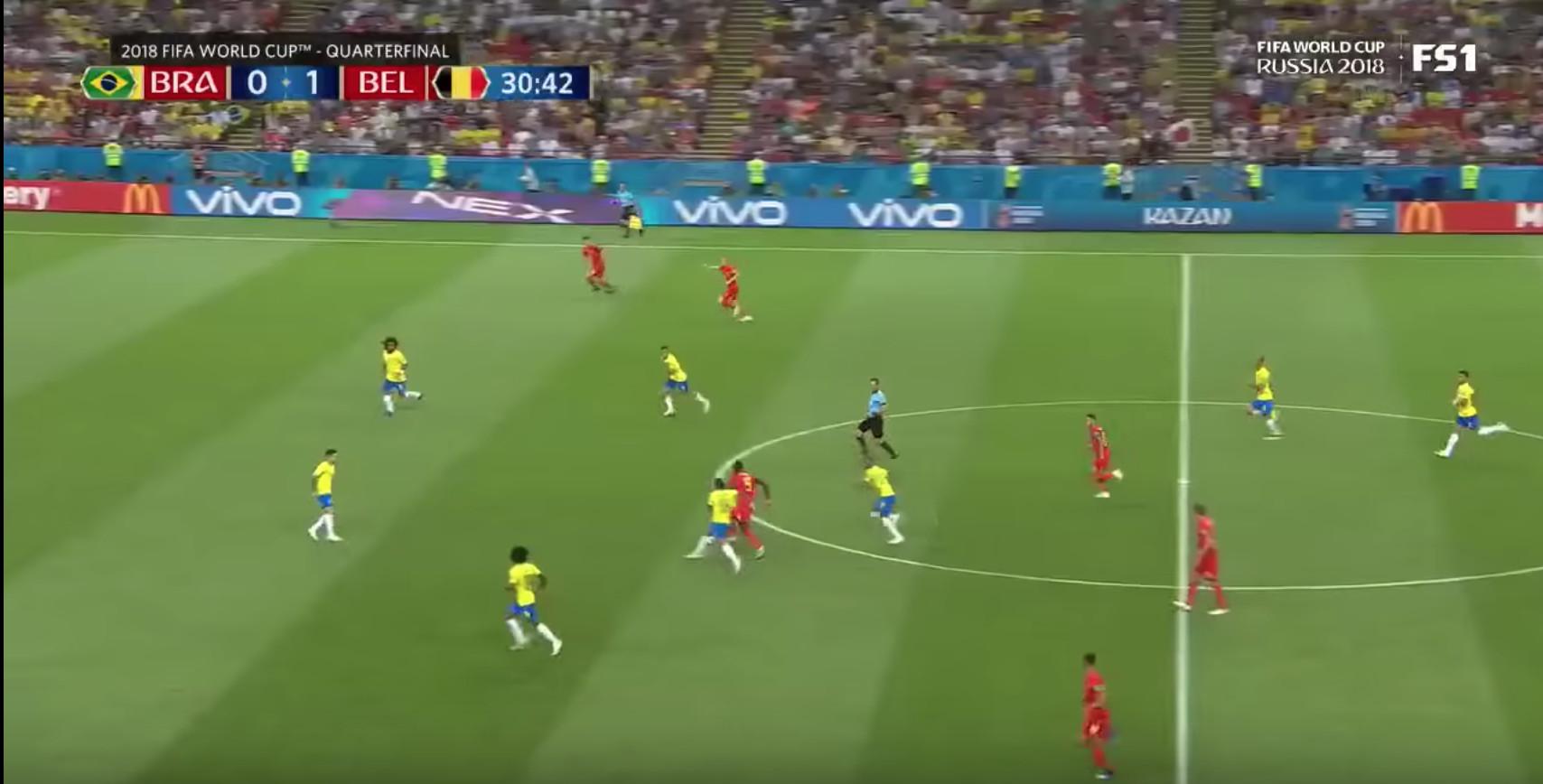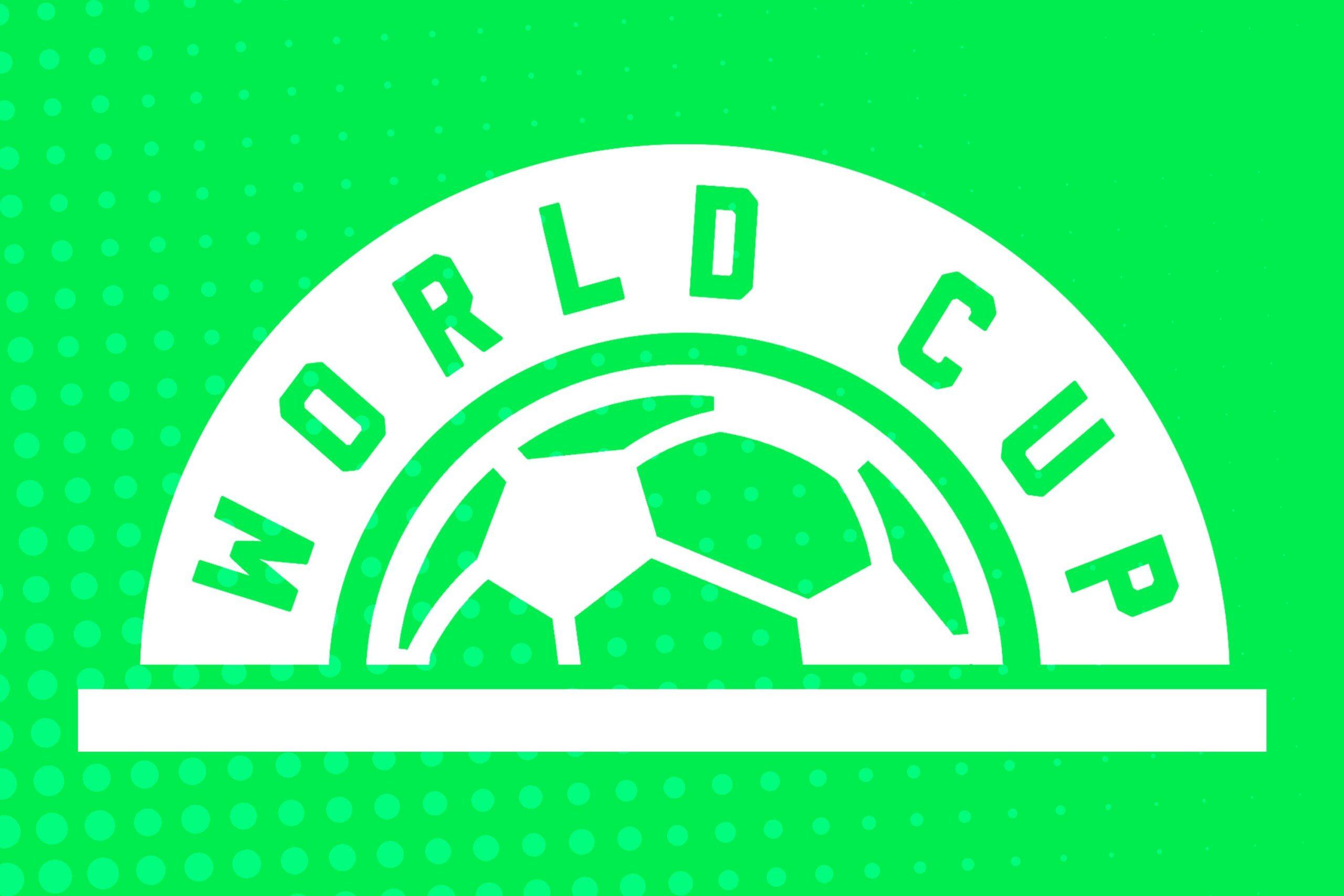Versatility is what often defines the NBA teams that embrace positionless basketball, or the growing number of NFL squads who prefer pass-catching backs. In soccer, this quality has mostly been seen in fullbacks—players like Brazil’s Marcelo—who are capable of supporting and creating chances while also stopping opponents from doing the same.
Such flexibility is increasingly being asked for all over the pitch, however: center backs who can dribble and occasionally create chances (England’s Harry Maguire), midfielders who get stuck in for tackles and go forward to score (France’s Paul Pogba), and goalkeepers who can handle the ball with their feet under pressure (France’s Hugo Lloris, but certainly not Willy Caballero). And, as the focal point of the attack, the modern striker has an impact that is measured by more than just goals—nearly as important are hold-up play, pace, positioning, crossing, and all the other factors that turn the best starting XI into a cohesive unit. To be too one-dimensional is often a detriment, barring the right circumstances.
Though watching the World Cup to study the best players isn’t an ideal backdrop—at most, teams are playing seven games, and we’ve seen more of Russia than Lionel Messi or Cristiano Ronaldo—the tournament has proved to be the perfect showcase for the world’s most complete striker. Romelu Lukaku’s star is shining brighter than ever, and rightly so.
The Belgian no. 9 has been at the helm of the Red Devils’ three-pronged Premier League attack (Lukaku plays his club soccer for Manchester United, who are also nicknamed the Red Devils), along with Manchester City’s playmaker Kevin De Bruyne and Chelsea’s speedy winger Eden Hazard. As a team, the Belgians have a World Cup–leading 14 goals, with Lukaku responsible for four goals and one assist.
But Lukaku’s most memorable contribution to the team thus far embodies the striker’s versatility, selflessness, and intelligence without even touching the ball. The last-minute finish against Japan in the round of 16 was credited to Nacer Chadli—likewise, the assist to right wingback Thomas Meunier—but it was Lukaku’s dummy after a blistering run that sealed their lethal counterattack. What’s most striking is Lukaku’s brief moment of inaction: He could’ve finished the move himself—and given his proficiency inside the box, there’s still a good chance that Belgium would’ve had their decisive third goal. But Lukaku’s willingness to defer to Chadli led to the easiest and most determinable outcome for his team.
The top strikers in the world—your Robert Lewandowskis, Harry Kanes, and Luis Suárezes—will continually draw this kind of attention by merely orbiting the ball, and Lukaku has perceptively used that spotlight to set up chances for his teammates as well as himself. Belgium’s second goal against Brazil saw Lukaku pacing down the middle of the pitch on another deadly counter—this time, with the ball at his feet. After zipping past Fernandinho at midfield, and just before Paulinho attempted a tackle of his own, he slipped the ball to De Bruyne. De Bruyne still had some work to do and smacked one hell of a shot, but Lukaku was the play’s driving force and conductor. Just before the pass, six Brazilians were keyed in on Lukaku—and none were watching Kevin De Bruyne.

Lukaku has been tearing up this World Cup, to say nothing of the moments when the striker does what he does best: bag goals. His second goal in Belgium’s World Cup opener against Panama was deceptively simple: He is very fast, so he ran into an open space and scored a goal because of that speed and an adept finish past Panamanian keeper Jaime Penedo.
Lukaku has demonstrated a full range of abilities beyond goal scoring, something he’s credited to working extensively with Thierry Henry, the Arsenal legend now serving as an assistant coach for Belgium. It’s not hard to see echoes of Henry’s game in Lukaku: He embodies the Frenchman’s unselfish play, cool-headed finishing, and instinctual positioning with singular, next-level speed. To see Lukaku employ all these qualities at once is scintillating to watch, the beautiful game at its most spellbinding.
International recognition isn’t new to Lukaku; rather, it’s the perception of his play on the field that is being reexamined. Pundits have often reduced Lukaku to his pace and physicality, and while those are undeniable traits of his effectiveness on the pitch, it can be an easy and lazy refrain by soccer analysts to describe players of African descent. The goals have always been there for Lukaku, but as he’s hopped between different stops in England for Chelsea, West Brom, Everton, and now Manchester United, he’s frequently been stereotyped as a flat-track bully: the type of player who’s only able to thrive in favorable circumstances and against lesser opposition. (If soccer was scrutinized more heavily by the likes of Skip Bayless and Stephen A. Smith, they might have once argued that Lukaku lacks the “clutch gene.”)
Lukaku’s contributions in knockout World Cup matches against Japan and Brazil—in addition to his four goals, putting him second in the Golden Boot race—provide him with a global platform to rebuke these misconceptions. As part of Belgium’s golden generation, Lukaku is already a legend in his country: He’s the Red Devils’ leading scorer with 40 international goals, and at just 25, he’ll have ample time to add to his tally. Lukaku and Belgium’s quest for their first World Cup final continues on Tuesday against a loaded France squad, but don’t expect the striker to fold under such pressure. As he detailed in a stirring piece for The Players’ Tribune, soccer was a road out of poverty for himself and his family—a passion that came with equally passionate ambitions at a young age. “I wanted to be the best footballer in Belgian history,” he wrote. “That was my goal. Not good. Not great. The best.”
Years later, on the biggest international stage in the sport, Lukaku is living up to these aspirations—not just for his country, but the gold standard for what a modern no. 9 should be in all aspects of the game.

